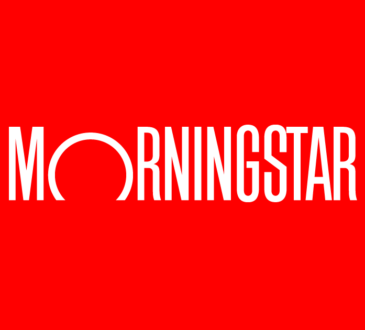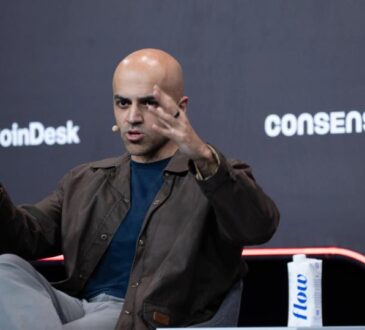
The prolonged slowdown in biotechnology startup funding has given an opportunity for a specific set of investors to step in: corporate venture firms.
Data compiled by BioPharma Dive show that venture funds associated with Novo Holdings, Eli Lilly and Sanofi have been among the most active backers of privately held companies this year.
Novo Holdings, for example, has been involved in 18 private venture rounds in 2025, the most of any of the roughly two dozen firms tracked by BioPharma Dive. Eli Lilly and Sanofi Ventures also contributed to 13 apiece, respectively, putting them among the upper echelon in terms of deal activity.
Corporate venture activity surged in 2025
Number of rounds involving the most active venture firms tracked by BioPharma Dive
The numbers reflect the growing importance of corporate venture investors — which often operate under the umbrella of a pharmaceutical parent — to privately held biotech companies. These firms have been a well-known part of the biotech startup ecosystem over the last decade or so. Many pharmas have venture arms that fund early-stage life science companies, among them Pfizer, Novartis, Roche and Johnson & Johnson. But they’ve increasingly been investing earlier and more actively in recent years.
Unlike traditional biotech investors, corporate venture arms don’t rely on outside funding from limited partners to raise new bankrolls. Instead, they draw their capital from their parent corporations, a steadier source of cash that can allow them the freedom to adopt a long-term strategy rather than focus on quicker returns, investors interviewed by BioPharma Dive said.
Lilly and Novo Nordisk, for instance, have billions of dollars in newfound revenue due to the popularity of their GLP-1 medicines for obesity, giving them — and, in Novo’s case, its corporate parent Novo Holdings, which is the associated entity that invests in young companies — more cash to work with.
“There’s a significant need for investors like Novo that are deeper-pocketed, that are longer-term focused to play a role in the space,” said Scott Beardsley, a managing partner at Novo Holdings. “Unfortunately, drug discovery and development hasn’t gotten any cheaper. It’s gotten more expensive, so the need for capital is more pervasive than ever.”
The presence of a corporate venture firm can also make young drug companies seem more appealing to other investors. A July report from Silicon Valley Bank found at least 70% of biopharma initial public offerings since 2022 have included at least one corporate venture investor, and all of those stock issuances raised at least $50 million.
Corporate venture firms also backed at least 60% of biotechs acquired during that time, data points that, taken together, are a sign that their presence might “increase the odds of a successful outcome,” the authors wrote.
“If you ask some of the VC stakeholders, or other investors that tend to syndicate with these partners, it can be seen as a sign of validation that pharma is in there and they are taking a look at the science and they like what they see, because these people are best in class at what they do,” said Ariana DaCruz, a senior vice president at Stifel’s Life Science and Healthcare Venture Banking group.
Corporate arms can also bring benefits to biotech startups that stretch beyond dollars, such as help making important new connections. Biotechs “see the value of relationships that align around shared interest in the science and are not solely based on financial opportunity,” said Brad Robling, the vice president of Lilly Ventures.
That kind of support has been more crucial during a multiyear pullback in biotech funding. IPOs have been harder for startups to complete, forcing investors to keep companies private for longer and be more judicious with their cash. Many startups have had difficulty raising further funding rounds, resulting in staff layoffs, programs cuts and, in some cases, shut downs.
Uncertainty surrounding drug regulation and pricing, as well as competitive threats from China’s fast-growing biotech ecosystem have added more recent challenges for young companies, too.
Amid that backdrop, corporate venture arms have gotten a bigger chance to participate. In 2022, Novo Holdings, Sanofi Ventures and Eli Lilly were involved in a total of 11 private funding rounds. This year, that total has already ballooned to 44, according to BioPharma Dive data. (The upswing in activity has made them the only three corporate entities meeting BioPharma Dive’s target focus.)
The presence of a corporate venture investor is a “particularly attractive option when access to capital from traditional venture sources and the public markets is constrained,” Robling said.
For startups, the theoretical downside of that activity is the possibility that corporate venture interest is tightly tied to the whims of a pharmaceutical company. Some corporate venture arms have a “primarily strategic mandate,” DaCruz said, looking for technologies that fall in line with what their pharma owners have prioritized. Those that invest according to that mandate might be influenced by changes in leadership or corporate strategy, which could cause funding for projects no longer in favor to disappear without warning.
A look at the recent investments by Novo Holdings, Eli Lilly and Sanofi Ventures shows many are based in areas, like neurological and immune drug research, that their associated pharmaceutical companies favor. Still, the corporate investors interviewed by BioPhama Dive insist they have a broader directive, homing in on unmet medical needs and science likely to translate into real drug prospects.
“Our view is, at this moment in time, this is what biotechs need,” Jason Hafler, Sanofi Ventures’ managing partner, said in September. “They need funds and [corporate VCs] to step in and lead rounds or co-lead rounds.”




